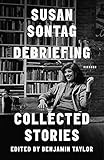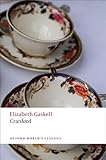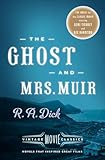Having a mild fascination for anything to do with Trieste (that magical city where languages flow together and Joyce and Svevo still walk), I devoured a wonderful collection of reader’s reports written by Roberto Bazlen (1902–1965) for the Italian publishing houses Einaudi and Bompiani. The book’s called Lettres éditoriales in French and contains, among other things, a note about Georges Bataille that made me laugh: “Un aspirant loup qui se dandine face à l’irrationnel (…) Petit névrotique esthétisant et bourré d’auto-compassion.” (“A would-be wolf toddling about in the presence of the irrational…A neurotic little aesthete steeped in self-pity.”) He was being a little unfair, of course: I remember how discovering Bataille when I was 20 (L’Abbé C and Madame Edwarda) showed me a new way to think and write about the world. Bazlen, by the way, was the inspiration for another fine novel, Le stade de Wimbledon by Daniele del Giudice, which is about a famous author who never writes anything.










 Trieste is also the backdrop for Umberto Saba’s only novel, Ernesto, which describes like no other book I’ve read the awakening of homosexual desire in a teenager. I’ve always liked Italian writers; they create a very special brotherhood with the reader. Spanish and Portuguese writers do this, too. Whenever I feel a bit melancholy, I read Italian, Spanish, or Portuguese writers, to warm myself up.
Trieste is also the backdrop for Umberto Saba’s only novel, Ernesto, which describes like no other book I’ve read the awakening of homosexual desire in a teenager. I’ve always liked Italian writers; they create a very special brotherhood with the reader. Spanish and Portuguese writers do this, too. Whenever I feel a bit melancholy, I read Italian, Spanish, or Portuguese writers, to warm myself up.
A marvelous photograph of Winnicott in old age led me to The Piggle: An Account of the Psychoanalytic Treatment of a Little Girl, which gave me the idea of writing a play centered around a little girl who speaks like Piggle. In Winnicott’s book she sounds like Lewis Carroll. It occurred to me that Alice in Wonderland is a sort of psychotherapy session, but without the psychoanalyst.
A friend of mine lent me a novel called Loin des bras by Metin Arditi, a French-speaking Swiss writer of Turkish origin. It’s probably the only novel I’ve ever read that, though written by a man, feels from beginning to end as if it were written by a woman. I don’t know if Metin Arditi was aware of this while writing the book. Probably not. But I think he has a female narrator in him.
I don’t recall how I came to read the Hungarian novelist Ferenc Karinthy’s terrifying Epépé. A brilliant linguistics teacher arrives in a country where nobody understands a word of the many foreign languages he speaks, and where he can’t understand a word of their language either. It was so scary that I couldn’t finish it. A few nights later, I dreamed I was in an alarming country where nobody spoke my language.
One day I wanted to hear the sound of Maupassant’s French again, so I read one of his short stories, “La petite Roque.” It’s a an absolute masterpiece; the language is like Bach.
I came across Les petits chevaux de Tarquinia among my younger sister’s books, in our family house during the holidays. It was the one book by Marguerite Duras I hadn’t read: a tragic love story, set in a sweltering seaside town, which could almost have been written by Sophocles. Some of the characters are unforgettable: a crazy little maid who says out loud whatever comes into her mind, an elderly couple who watch over their son’s corpse, and a grocer who talks about love and kindness in a magnificent language that could almost have been written by Thomas Bernhard.
I also read (in French, and for the third time, though it felt like I was reading it properly for the first time) Dylan Thomas’s Portrait of the Artist as a Young Dog. I like his way of referring to himself in the third person, since the young boy he once was is a kind of stranger to him now, and how he often casts himself as a minor character, a sort of extra, in these stories about his childhood.
Another book about memory that I enjoyed is Souvenirs dormants (Sleep of Memory) by Patrick Modiano. Modiano’s novels are probably the best guidebooks you can get if you’re visiting Paris. A bit like Simenon’s, though with Modiano you’ll get lost because the Paris he describes is a dream, even if the street names are real. Modiano is the master of mental blanks.
I remember a very touching piece in a collection of Susan Sontag stories called Débriefing in French, relating her visit to Thomas Mann, at 14, at his home in Pacific Palisades in Los Angeles.
Then there’s Michel Houellebecq’s latest book, Sérotonine. I admire his way of writing about mental anguish and contemporary solitude, and I like his irony. He can also be very funny. But I don’t understand why he always uses such crude language when he’s writing about sex. It’s an aesthetic choice I always find baffling in his work. If I met him, I’d ask him about it.
I also read Elizabeth Gaskell, a contemporary of Dickens, for the first time. I loved Cranford (in a wonderful French translation by Pierre Goubert), not only for its charm and wit and intelligence, but also because of the peculiar situation of the narrator. The woman telling the story is a friend of the main character, Mathilda, and spends several months at her friend’s home in Cranford. But she tells us nothing about herself; she’s there simply as an observer. Even her name, which the reader discovers at the end, is an empty shell: Mary Smith. She’s like a ghost.
Apropos ghosts, I found myself thinking at one point about the Manckiewicz film, The Ghost and Mrs Muir, so I decided to read the novel it was based on, by R.A. Dick (again in a French translation). A young widow discovers the delights of solitude and starts writing a story dictated to her by a ghost. I couldn’t help wondering if we don’t all write under the dictation of a ghost, and if the solitude you need in order to work isn’t a prerequisite for hearing what the ghosts are saying.
More from A Year in Reading 2019
Don’t miss: A Year in Reading 2018, 2017, 2016, 2015, 2014, 2013, 2012, 2011, 2010, 2009, 2008, 2007, 2006, 2005









